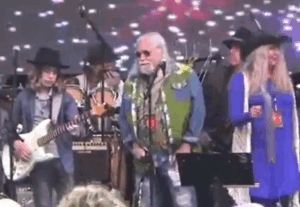How John Lennon Connected “Strawberry Fields Forever” To Buddhism

via @Rui Angelo A. Sampilo / YouTube
“Strawberry Fields Forever” isn’t just a psychedelic rock song—it’s a philosophical meditation set to music. While The Beatles were known for pushing musical boundaries, this track pushed intellectual ones too. With surreal lyrics and an otherworldly atmosphere, it questioned what is real, what is illusion, and what lies in between.
John Lennon wrote the song during a transformative period in his life, and much of that transformation involved spiritual introspection. In interviews, Lennon would later reveal how Eastern philosophies, especially Buddhism and Hinduism, shaped his worldview. “Nothing is real,” he famously sang—a line that has invited decades of analysis.
But for Lennon, it wasn’t just metaphor or poetry. His lyrics reflected deeply personal struggles and revelations. As he began confronting his own ego and trauma, he turned to philosophies that explored illusion and impermanence. “Strawberry Fields Forever” became an audible expression of those ideas.
Lennon’s Philosophical Core
One of the most quoted lines from “Strawberry Fields Forever” is “Nothing is real,” a phrase that sounds simple but carries profound meaning. In a 1980 interview, Lennon broke down this lyric and linked it directly to Eastern spiritual traditions. To him, it wasn’t just poetic—it was existential truth.
Drawing from both Hindu and Buddhist thought, Lennon described the world as “an illusion.” He referenced Rashomon, the Japanese film known for its shifting perspectives, to illustrate how people live in “agreed-upon illusions.” This mirrored the Buddhist idea that reality is filtered through perception, not objective truth.
For Lennon, this realization wasn’t abstract—it was deeply personal. He began to understand that his sense of reality had been shaped by his pain, ego, and upbringing. The song’s dreamy ambiguity reflected that personal awakening: a way of saying the world outside is as unstable as the world within.
View this post on Instagram
A Daily Spiritual Struggle
In his later reflections, Lennon admitted that he once felt victimized by the world. He blamed governments, religions, and institutions for his personal suffering. But through self-examination and spiritual philosophy, he began to recognize that he was not separate from the world—he was part of it.
This realization mirrored Buddhist teachings on interconnectedness and the illusion of separateness. Lennon said that he came to understand that he was “responsible for me, as well as for them.” That shift in thinking marked a move from blame to accountability—a key element in spiritual growth.
He even described life as peeling an onion, referencing another Beatles song, “Glass Onion.” Each layer revealed a new part of himself, another illusion to challenge. This metaphor fit well within the Buddhist practice of self-inquiry, where enlightenment is not a destination, but an ongoing process of discovery.
View this post on Instagram
A Chart Hit With Spiritual Roots
Despite—or perhaps because of—its abstract lyrics and unconventional structure, “Strawberry Fields Forever” found commercial success. It peaked at No. 8 in the U.S. Billboard Hot 100 and was later included in Magical Mystery Tour, which topped the U.S. charts. It also hit No. 2 in the U.K. as a double A-side with “Penny Lane.”
Its performance on the charts proved that audiences were ready for songs that went deeper than simple romance or rebellion. The track stood as a bridge between pop accessibility and philosophical depth. Lennon’s ideas, while rooted in complex traditions, were made digestible through melody.
Today, “Strawberry Fields Forever” is not just remembered as a hit—it’s remembered as one of the first mainstream pop songs to challenge listeners’ perceptions of reality. In doing so, it became a kind of spiritual artifact—a song where Lennon invited everyone to look inward and ask, “What is real?”
View this post on Instagram












